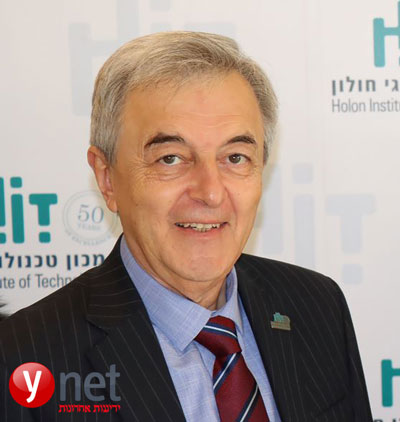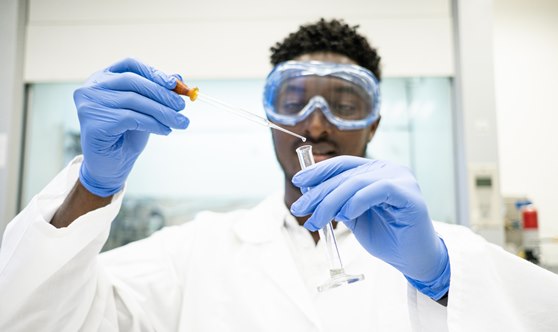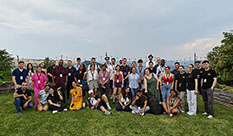More:
News & Stories
The Corona Virus Provides New Opportunities to Stop the Israel "Brain Drain"
Ironically, Israel’s speedy and effective response to COVID-19 provides a rare opportunity to bring our scientists home.
An Opinion Editorial by Prof. Eduard Yakubov, President of HIT

For the past seventy-three years, the State of Israel has been at the forefront of groundbreaking technology, innovation and global entrepreneurship. However, while we have much to be proud of in the excellence of our researchers and scientists, we have also learned that excellence is a double edged sword: the better our academic scientific community, the greater is the danger of their emigration abroad where research budgets are larger, laboratories more sophisticated, and an abundance of resources are at their disposal. While the academic-research career path places great value on post-doctoral research and positions in multinational companies abroad, the interest of the State of Israel has always been to bring our scientists back home so they can share their new-earned knowledge with the higher education and business sectors.
According to a study by the Science Abroad organization, the total lost GDP potential of scientists who left Israel reaches NIS 2.4 billion cumulatively over time. The economic contribution to the country as a result of the return of scientists is estimated at NIS 914 million over the next 5 years, with each additional scientist returning estimated to provide a financial yield of NIS 2.9M. When considered over the typical course of a 30-year career, Israel will lose about NIS20M for each scientist who does not return. The negative implications of such a trend speak for themselves.
As a country which has relied on its unique spirit of innovation and discovery, we cannot afford the luxury of not capitalizing on the positive demographics created by the Corona pandemic, i.e., a marked decline in Israel’s ‘brain drain’ for the first time in a decade.
The State of Israel must understand that its most important resource and the basis for its scientific and entrepreneurial achievements is its human capital. The many successful companies overseas led by brilliant Israeli scientists attest to this, and Israel's technological power has made the "Israeli mind" a prestigious and sought-after brand in the global industry -- one that guarantees impressive and creative results that know no bounds.
Academic institutions in Israel continually strive to nurture students and researchers who are destined to propel the State of Israel forward to ever higher achievements. To accomplish this, however, we must be able to provide our best and brightest with clearly outlined career opportunities, conducive research environments and the resources they require to develop and progress professionally. This must take top priority.

One can ask: Brain-Drain – Why Now? Simply put, Israel’s impressive capabilities of vaccinating its population so swiftly has earned the admiration of the world. Moreover, despite predictions to the contrary, the country’s success in rehabilitating its economy relatively quickly makes Israel a much more attractive place to be, to live and to raise a family. Indeed, Israel is perceived as safer and flush with new possibilities and rapidly emerging favorable conditions. As a result, the numbers of scientists returning home have increased – a trend which needs to be strengthened and nurtured, even after the pandemic recedes. Researchers must be provided with new and challenging employment opportunities must be provided, and additional budgets dedicated to research and development infrastructures must be allocated.
One way to accomplish this is for the government to encourage international technology, biomed and biotech companies to continue to open R&D Centers in Israel, and also significantly expand the notion of ‘remote workplaces’ which would allow Israeli researchers and scientists to ‘work overseas’ while still living in Israel.
An excellent example of this is the government’s massive Project Nimbus, which will see Israel build its own local cloud storage server centers at an investment of roughly NIS 4 billion shekel by global technology giants Google and Amazon for the first phase, with second and third phases yet to come.
There is no doubt that projects of the scope and scale of Project Nimbus will transform the Israeli technological ecosystem and infrastructure.
As the President of one of Israel’s premiere technological institutions, this kind of creative vision will help us capitalize on the new and positive demographics which have emerged from the tragedies of Corona and hopefully end the brain drain which has undermined all that we strive for: Israel as a place of growth, prosperity and good health.
First published in Y-NET, a leading Israeil news site
Posted: 15/08/2021
- News & Events
International Week of Interdisciplinary Studies and Academic Collaborations in Crete
A substantial delegation of 16 students and four faculty members from HIT Holon Institute of Technology participated in week-long international activities and events at HMU-Hellenic Mediterranean University in Crete. ...


 Additional programs
Additional programs
